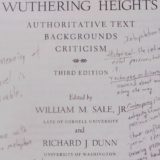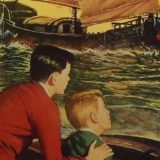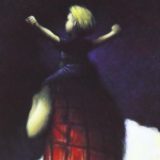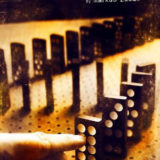The 6 Qualities of Great Teen Readers
What is teen literacy? What are we after when we say we want our adolescents to be more literate? What is the aim of teaching teens to read?
Literate teens are:
Fluent readers: Teen readers must know how to read. That seems obvious, but many teens still struggle with decoding words, and to some the physical act of reading is painful. Students must be able to pick up a text and be comfortable reading with a certain amount of speed and understanding.
Self-motivated readers: The literate teen reads when the teacher or parent is not around. He or she is always in the middle of a book, sometimes two or three at once. It’s not enough to be able to read, a teenager must want to read. I teach many students each year who are capable readers but who only pick up a book because it is required. Literate teens actively seek out opportunities to read.
Interactive readers: Once teens are fluent, self-motivated readers, the next level of literacy is the ability and desire to communicate about books. The literate teen talks to others about books and writes about his or her reactions and insights. Literate teens belong to book groups, they write comments in their books, they keep a reading journal or blog, and they tell their friends and family about the books they’ve read. They begin the important shift from being merely a consumer of the written word to being a producer, generating their own ideas and sharing them with others.
Eclectic readers: The literate teen reads in several genres, from several points of view. We’ve all seen the teenager who devours one particular type of book: all they read is fantasy or mystery or biography. That’s a good place to begin, especially when the student is learning to be fluent and self-motivated, but the literate teen eventually becomes a diverse reader, someone who reads across genres and subjects, and someone whose interests are always expanding.
Analytical readers: To be a literate teen means to seek meaning from the text no matter how challenging, to be able to understand a book by looking at its parts. In nonfiction, literate teens are able to find the structure of an argument and recognize the key words an author uses to make his or her point. In fiction, literate teens see how the author manipulates the various elements of the story to achieve meaning or create an experience in the mind of the reader.
Evaluating readers: Finally, literate teens make reasonable, informed judgments about the ideas and experiences they read about. They are able to recognize the strengths and weaknesses of texts, including an author’s biases and/or faulty logic.
In summary then, literate teens are fluent, self-motivated readers who read for variety and depth, who communicate about what they read and generate their own ideas, and who effectively analyze and evaluate other people’s written works.
So how does a teacher or parent help their teen become more literate? The answer to that question is the basis for this entire website. But here is the beginning of an answer: We must be as literate as we want our students to be. Ask yourself the following questions:
- Am I a fluent reader? Can I read with ease and moderate speed?
- Am I self-motivated? Am I in the middle of a book right now?
- Do I interact with the books I read? Do I have my own blog? Am I part of a reading group? Do I have a reading journal? Do I write comments in my books? Do I write comments on blog posts that I read? 🙂
- Do I read for variety or am I stuck in a reading rut? Do I read nonfiction and fiction? Do I only read people who have my point of view, or I do I try to understand other peoples’ perspectives?
- Do I analyze what I read? When a book is challenging do I resign myself to not understanding it, or do I try to break it down and figure out the author’s meaning?
- Do I evaluate what I read, or do I simply accept the author’s points as valid without testing them? Am I able to identify the biases in this post, for instance? As I’ve read this post, have I been judging the ideas against my own experience and knowledge to test their validity, or have I simply accepted them as a matter of course?
In the coming days, weeks and months I’ll have a lot more to say about how to help our students become more literate. Please join me and leave your own comments about what you do to help teens become more literate.












